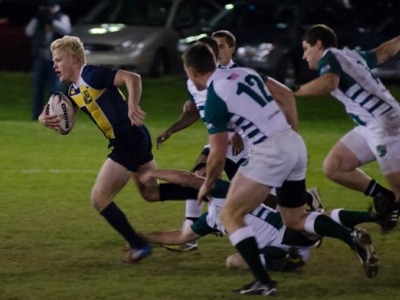Last year, the owner of the Los Angeles Clippers, Donald Sterling, was put in the spotlight after a phone call between he and his girlfriend was released by TMZ Sports. He called her and made a few remarks about a recent post she had on Instagram of her with Magic Johnson. He insisted that she not publicize that she associates with black people, as it appeared to make him uncomfortably angry.
His comments were undoubtedly racist and aptly he drew an incredible amount of criticism for the phone call. Sterling was banned from the NBA for life. The way the Clippers’ players and some others around the league reacted relates to the piece we read by Kelly Candaele and Peter Dreier, “Where Are The Jocks For Justice?”.






You must be logged in to post a comment.